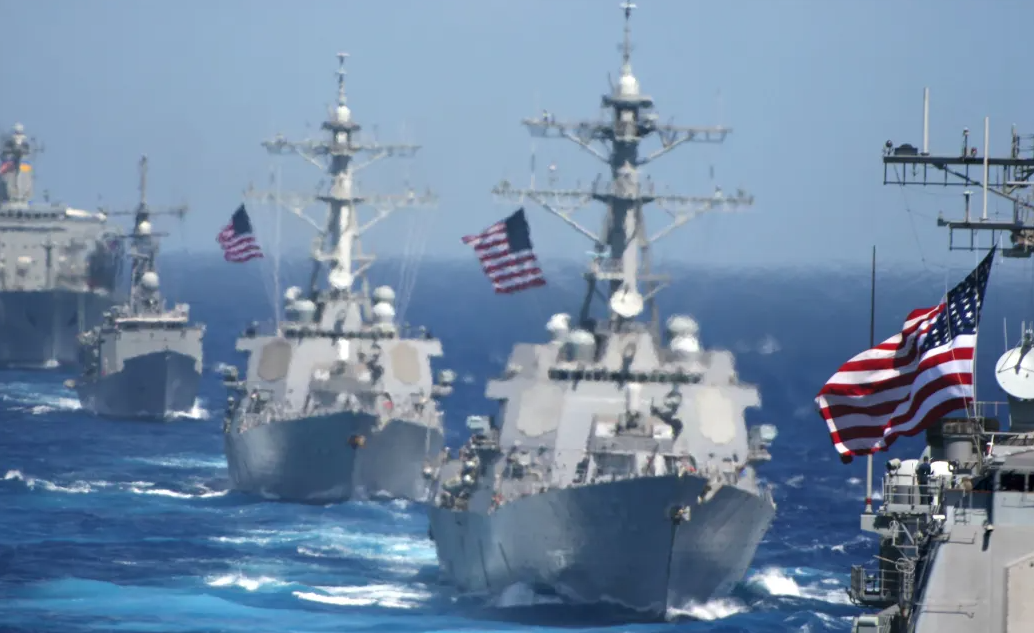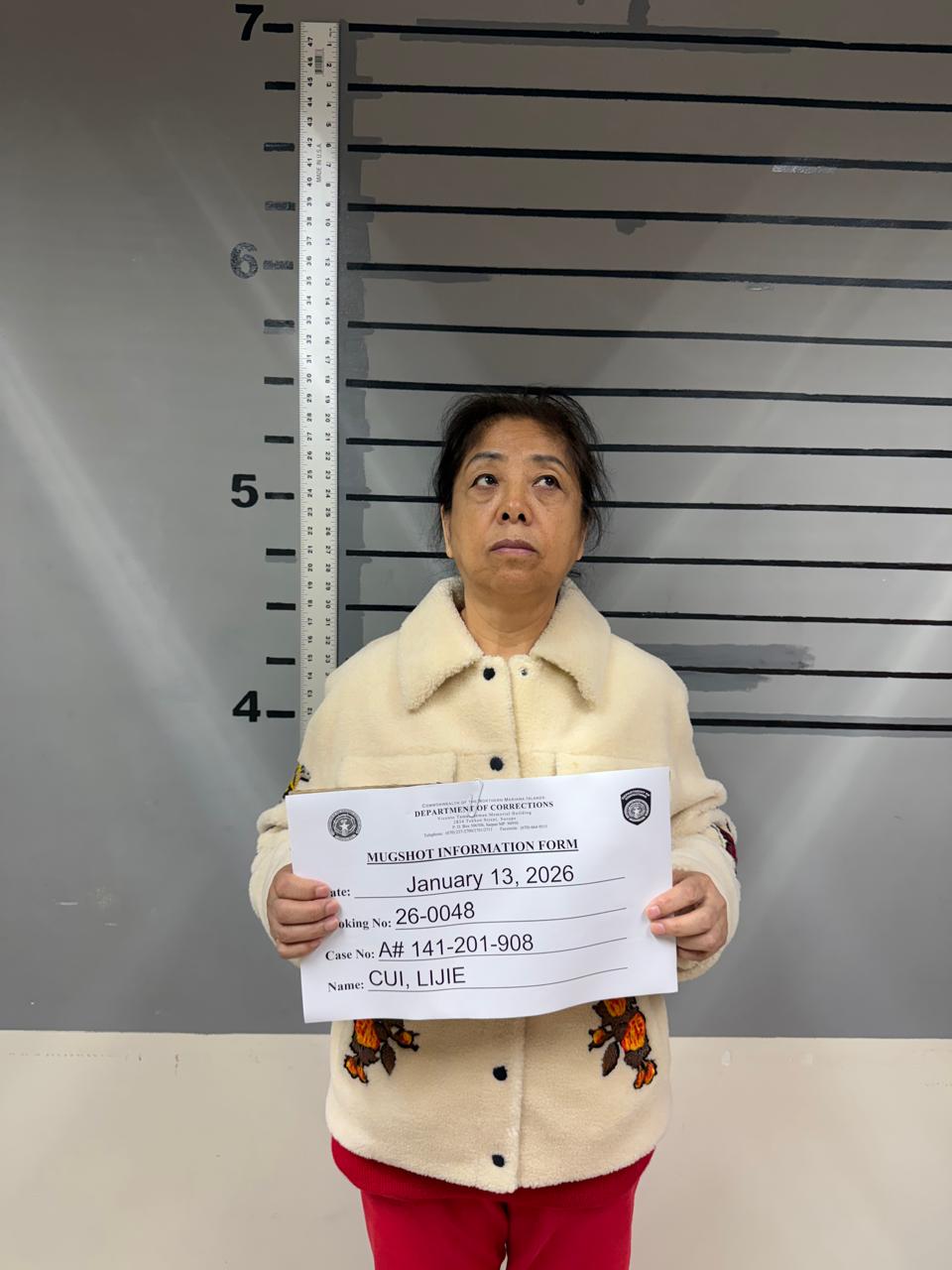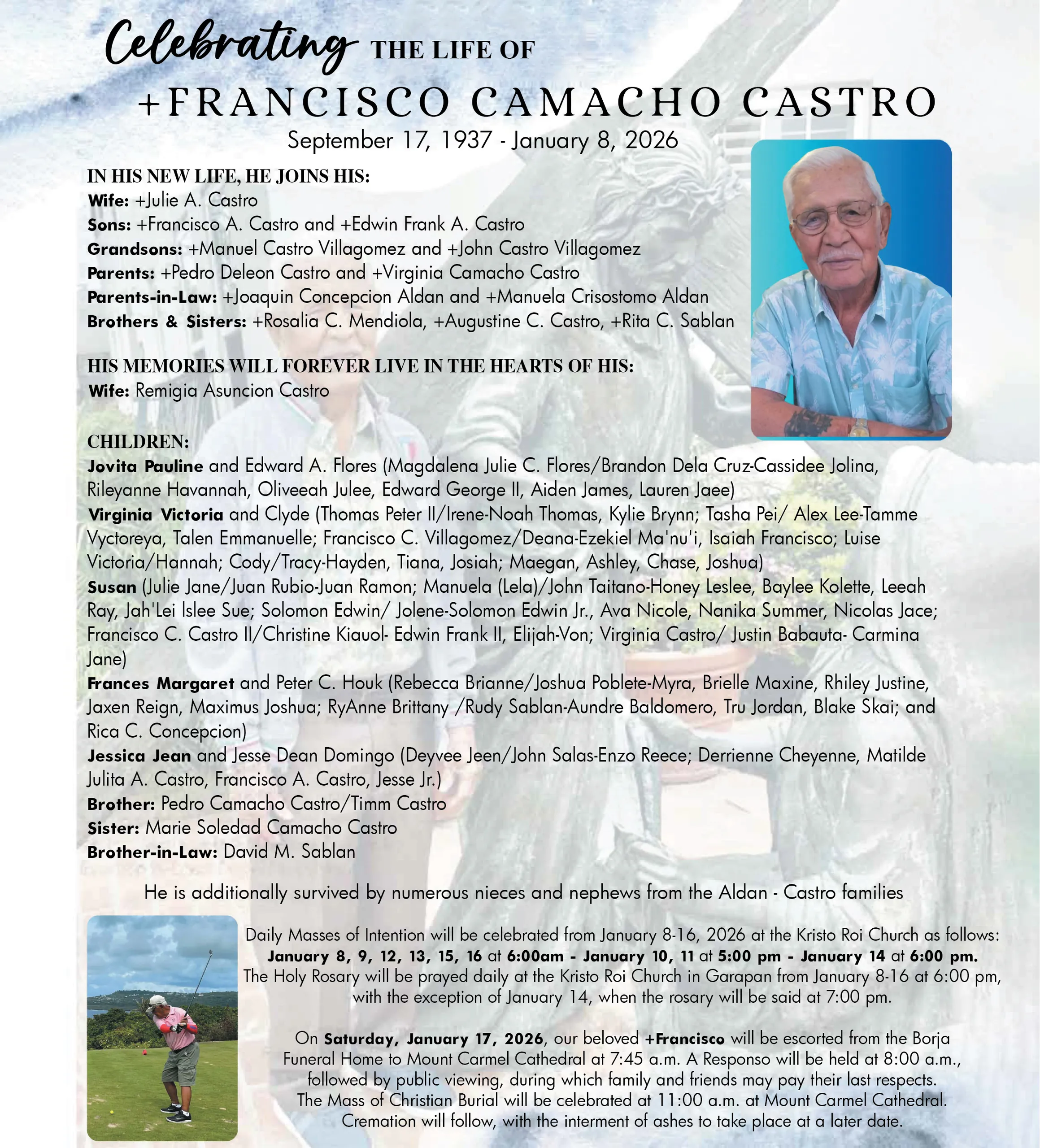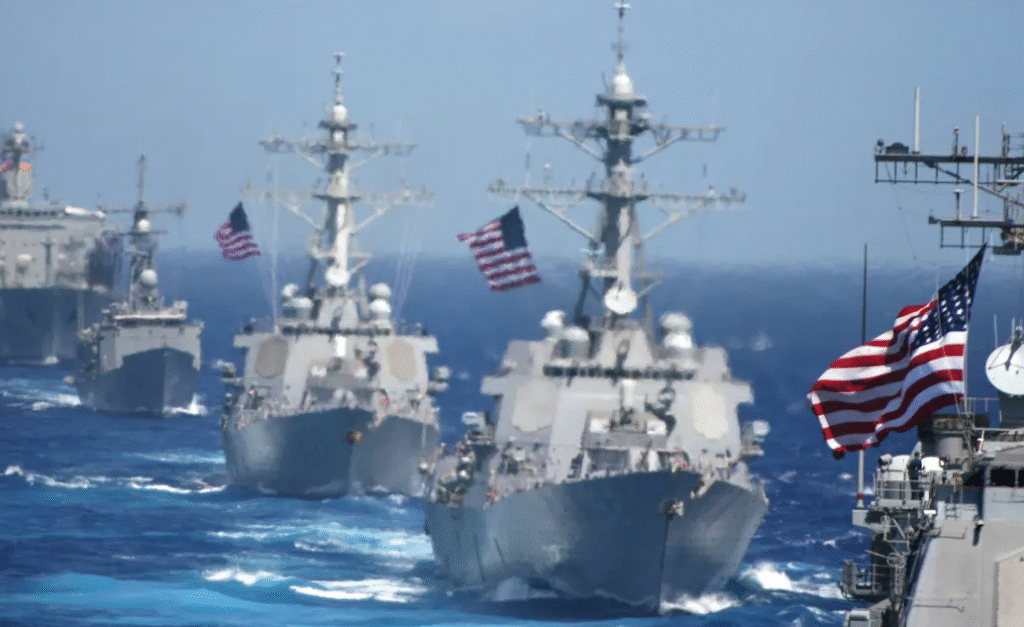
REGARDING the ongoing military buildup in the Marianas, the five candidates for U.S. delegate said they will ensure minimal impact on the environment and the islands’ cultural heritage while leveraging CNMI’s strategic location to secure economic benefits.
John Gonzales (Independent), Liana Hofschneider (Independent), Kimberlyn King-Hinds (Republican), Edwin Propst (Democrat) and James Rayphand (Independent) participated in a forum hosted by the CNMI chapter of the Society of Professional Journalists at the KSPN news studio on Aug. 17.
Among other issues, the candidates discussed the $383 million Tinian Divert Airfield construction project, which aims to enhance the strategic capabilities of the U.S. Air Force in the Pacific region. The airfield will serve as an alternative landing site for U.S. military aircraft if Andersen Air Force Base in Guam becomes inaccessible due to war or natural disaster.
According to King-Hinds, who is from Tinian, some expect that the CNMI might experience economic results similar to Guam’s due to the military buildup on Tinian.
“That is simply not the case,” said King-Hinds, a lawyer and former Commonwealth Ports Authority board chair.
“In Guam, it’s one island; here in the CNMI we are divided into three [main] islands, and the way the military spends its money basically is it spends where the impact is at. What we been working on now is how to mitigate these impacts to include the environment,” she said.
King-Hinds wants the U.S. Department of Defense to pursue a
“one CNMI” approach.
“Right now, the focus is on Tinian. What we need to be doing basically is ensuring that our island is protected from invasive species like snakes, rhino beetles, and we need to be able to provide funding for our law enforcement here on the ground to be able to do their job effectively — these are the things that I’m working on right now,” she added.
‘Anchor tenant’
Gonzales, a freelance business consultant and grants writer, said he is excited about the U.S. military “finally establishing themselves in the CNMI” pursuant to the Covenant, and fulfill “their promise as an anchor tenant so we can work in partnership with dignity, so we can have people, our small businesses, accessing military contracts. But at the same time, make no mistake, I will make sure that the U.S. will adhere to the National Environment Policy Act and…[there must be] archaeological consultations, because responsible environmental stewardships must be adhered to…to avoid [the] irreparable destruction of our cultural homeland.”
Propst, the CNMI House floor leader, said he supports the military and the revenue that it brings.
“But we have to realize that there are environmental concerns. Stakeholders always must be included and any detrimental impacts on our environment [and] our cultural heritage must be respected and adhered to. There must be a balance, always, for the military to succeed and thrive, through protection of our culture,” he said.
Hofschneider, a Chamorro activist, said: “As an advocate for the environment and indigenous rights, [I take note of] the United Nations declaration on the rights of indigenous people, which mentioned ensuring less impact from the great footprint of the military on indigenous lands. As an indigenous advocate I will ensure that the U.S. Congress addresses the environmental impact…. We are one of the [world’s] oldest civilizations.”
A former Office of Vocational Rehabilitation director, Rayphand said “I was pleasantly surprised to see how much input the military sought before they did any work here. There was a large level of back and forth and consideration about what the community needs and what the environment needs. I think as a delegate it really comes down to holding the military accountable to their own protocols, which already exist. What better seat to…see it from than the delegate seat. To sit with the brass and make sure they are holding people on the ground to their own procedures.”
‘Leverage’
Ask how they will “leverage” the CNMI’s strategic importance to help the local economy, Gonzales said, “As your member of U.S. Congress, I will develop a newfound economic development [policy] with the military in a sustainable manner so that we achieve a true amicable partnership with military as anchor tenant. We must make sure that our people and businesses participate in a dignified way with access to military contracts and that we meticulously and diplomatically negotiate with our Department of Defense[and] the federal government to also immediately stabilize our collapsing basic public services and government coffers, and deposit the rest to our newfound economic valuation of our lands and ocean for future citizens and generations.”
If elected to Congress, Propst said one of the things he would push for is to serve on the House Armed Forces Committee.
“Also to support Gov. Arnold Palacios in his 902 talks to ensure that we are getting the best deal possible. We’ve seen the…benefits the military has given Guam, so the CNMI needs support from DOD, and that includes financial support, and economic prosperity.”
“We are a strategic location,” Hofschneider said, “One of the relationships we have is with the military and the DoD unequivocally has never had a reduction in the national budget. As your delegate, I will work closely with the DoD to ensure that we are a line item in the national budget. To ensure we protect our environment, and achieve a progressively higher standard of living — that was the promise.”
Rayphand said, “We can never let any member of Congress or anybody else holding the purse strings [minimize] the importance of the role the NMI has played throughout the history of the U.S. military [since World War II]. It’s really a matter of sitting down and reminding them not just of the past but reinforcing our strategic value now. I think that’s made clear with the recent movements of the military — there’s no doubt we hold a high strategic value in the area, and I think we need to remind them.”
‘One-on-one’
King-Hinds said she is having the same conversations with Indo-Pacific Command officials.
“These are one-on-one conversations that we are having,” she said as she also mentioned the recent visit to the CNMI of U.S. congressional staffers.
“The conversation basically was, we must balance national security interest here in the CNMI, with the CNMI’s ability to be economically self-sustaining — that is the benefit we bargained for, and we must all do better, the U.S. Congress must deliver,” King-Hinds added.
Asked about a possible divert facility on Saipan, Propst said, “That is something we should all discuss as a Commonwealth.”
He said, “As we heard time and time again, the CNMI and Guam are the ‘tip of the spear.’ It is this reason why I have been doing all I can, as a representative, with my colleagues, to reach out to Guam and discuss these issues that deal with the military, to also learn and listen to their concerns and growing pains with the military. But I can tell you there’s more positive than there’s negative if you really consider what has happened during the pandemic. We were just barely surviving, when our hotels were at 0%. A few people were trickling in, [but] the military was packing the hotel rooms [in Guam] and contributing to the economy. [Guam] always have that fail-safe that has always helped them. We now have the divert airfield in Tinian, and we have seen the economic impact and the benefit that it has, and that’s fantastic. We need, as a community, to look at this to ensure that when the military does come in, that there’s no detrimental impact on our environment, on our cultural heritage, the flora and fauna must be protected, and we must protect our small community. We are a beautiful Commonwealth, we have so much potential, and we are limited in our size but not in our ability to do great in our heart.”
Hofschneider said, “The military footprint has a very big impact on the environment. As an advocate of indigenous rights and the environment, it is important for me that we sit down and analyze what the military has in mind. Right now, we have a divert airfield that was supposed to be in Saipan, but now it’s in Tinian. They should have done a better job in ensuring that the ports in Tinian were protected.”
Rayphand said, “I will support an extra divert airfield here in Saipan. Overall, I cannot overemphasize my pleasure or joy in seeing military presence here. I absolutely love seeing the military here. I think the more the better.”
King-Hinds said, “The question should be asked to our community. How much more of our lands, our water, and our air are we going to cede to the federal government?”
She added, “We are not getting the benefit of the bargain today of this original agreement, so before we talk about giving up more to the military, we need to start working on demanding what our rights and privileges under the Covenant are. As your delegate I will focus on that, and I also promise that those decisions will not be made in a darkroom but [in] consultation” with the public.
‘Strategic and deliberate’
Gonzales said, “We must be strategic and deliberate in our economic platform and work moving forward, learning from the observations and experiences of the past. We must work together respectfully, amicably, with the U.S. military, again, as anchor tenants making sure they are responsible environmental stewardship, and at the same time our economic prosperity is not interrupted going forward.”
Asked about the upcoming 902 talks, Hofschneider said, “902 as you are all aware is a venue provided [by] the Covenant. Recently I just read that the Governor has included Section 702, one of the funding areas I have been advocating for in the past months. I’ve been asking the Legislature to look into that section — that is a very important section. I will continue to say this. We were promised a progressively higher standard of living for giving up our international relationship, for giving up land, for giving up our airspace, for giving up our peace and tranquility [while] ensuring [U.S.] national security…. We are a strategic location…our region is very volatile.”
“As your delegate,” she added, “I will make sure that we have a stable economy, that we are not a rider — we want to be a line-item in DoD issues, because we matter, our people matter, our islands, our CNMI matters. We are America’s morning. Our lives matter, and our responsibility to our children and the future generations is in our hands now and it’s critical. We have to make sure that for the next generation, we leave it better than it is. I look forward to sitting down with the military should you send me to Washington, D.C.,” Hofschneider said.
Rayphand said, “The mere fact, that we can sit down here and debate, whether or not or how we are going to deal with the military is a testament to how important the military is for us. They are the reasons why we have the freedoms that we have. As far as giving up land, I look at it [as] sharing the land that they are helping us protect. I want to see the military, yes, but we have to balance it with our economic interest, and importantly we have to balance it with our cultural heritage, but I don’t see it as [something] we are giving up.”
‘One Marianas’
King-Hinds wants a “One Marianas” approach in the 902 talks with the U.S. government.
“If you set foot…in the Marianas, whichever island you are on, all of the Marianas [should] benefit…because we all sacrifice so much to be able to have this relationship, and we should all get the benefit of this relationship,” she added.
Gonzales said he would ask for immediate relief for “the struggling people who are suffering and who are tired of suffering — all the costs of living are relentless. Please governor and the 902 team, help our people, resuscitate our economy, give hope and jobs so businesses can open and…flourish while we develop the near term and long-term economic framework that is sustainable.”
“Leverage,” Propst said, “that is something we need to look at.”
“Being the tip of the spear, we see how Guam have benefitted greatly. Just recently they are getting 7 billion dollars to put their powerlines underground. We must see the same type of benefit for the CNMI. We must fight hard for it, as one Marianas, and fortunately we have the backing of Guam to do that. I will do that as a delegate. I will do that even if I don’t win as a delegate, I will champion that,” he added.
As for balancing the military buildup and geopolitical issues in the region pertaining to China, Rayphand said, “I don’t have the advantage of sitting in on privilege meetings about what the geopolitical concerns are, what the military actions concerns are. It really comes down to trying to find the balance, but we need to have a seat at the table. I personally need a seat at the table in order to tell you what I can do about that. I can’t help but keep reemphasizing the fact that the value in military presence is not just economic but it’s also security, it’s the value in defensive posturing. I think just having them here is a deterrent to some of the concerns people have…[with] China. It’s really going to take a seat at a table to be able to negotiate. I think it will come down with the negotiation between the facts and fiction. I can hear China is a threat, but I don’t know the facts,” Rayphand added.
King-Hinds said, “Chinese tourism is not a threat in California, and how many military bases are there in California? Right now, we are seeing a surge of Chinese tourism coming to Hawaii, South Korea, Japan. Why is it good for everybody’s economy except for the CNMI? As your delegate, I want to remove the limitations so that all tourists can come here, so we can see this money coming to our government.”
Gonzales said, “Again we must be strategic and deliberate [and] make sure…we preserve U.S. national security, at the same time, not on my watch ever [that it] will be at the expense of our economic prosperity. I will make sure [of that].”
Propst said for “Chinese [tourists] to Hawaii and California, they require a visa, they pay a much higher price for that travel. Guess what, every single Chinese national that comes here, does it require that? Visa is done in parole in place, we are the only territory allowed that.”
He also noted the security concerns of U.S. senators and representatives with China.
Hofschneider said, “We have to be aware of our national policies. We have to be very concerned. We have to understand there are issues right now in the region with China. We must ensure that the people coming here are allies of our nation…. We cannot continue to be a steppingstone for people that are unchecked.”











